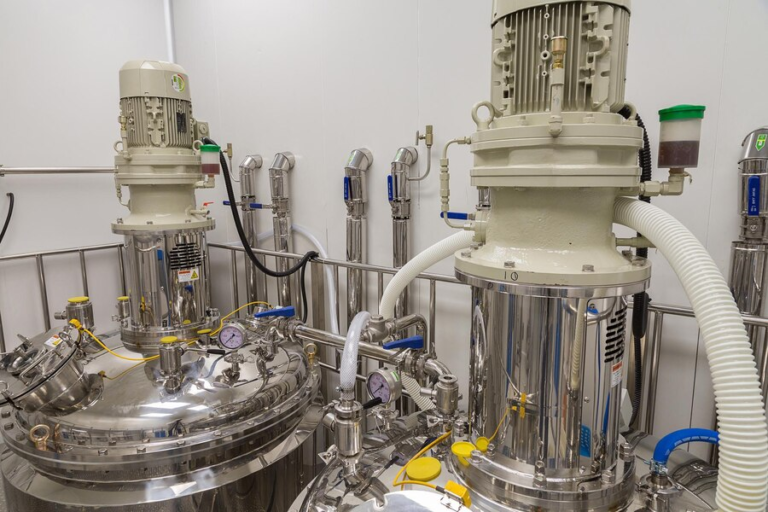Advancements in technology have transformed many industries, including the manufacturing and industrial sectors. One such innovation that has reshaped operations is the development of advanced industrial pump systems. These systems play a crucial role in fluid movement, and with technological enhancements, they have become more efficient, reliable, and versatile. In the ever-evolving landscape of industrial applications, understanding the benefits of these advancements is essential.
Increased Efficiency and Performance
One of the main advantages of modern industrial pump technologies is their improved efficiency. Older pump systems often operate at suboptimal levels, which can lead to excessive energy consumption and higher operational costs. In contrast, contemporary pumps utilize advanced materials and designs that significantly reduce friction and energy loss. For instance, variable frequency drives (VFDs) now allow for precise control over pump speed and flow, making it possible to match the pump’s performance to the application’s requirements. This level of customization not only conserves energy but also extends the lifespan of the pump system.
Enhanced Reliability and Maintenance
Reliability is a critical factor in any industrial operation. Downtime due to pump failure can result in significant production losses and increased maintenance costs. Industries looking to enhance their operations would do well to explore industrial pump solutions that incorporate the latest technological innovations. Advanced industrial pump systems are equipped with intelligent monitoring technologies that provide real-time data on pump performance and health. Sensors can detect issues early, allowing for predictive maintenance rather than reactive repairs. This transition not only minimizes unexpected breakdowns but also helps businesses to plan maintenance schedules more effectively. As a result, operations can run smoother and uninterrupted, protecting the bottom line.
Versatile Applications
Modern industrial pump systems are designed to handle a wide variety of fluids, including corrosive, viscous, and even hazardous materials. Advanced pumps can be customized to meet specific application needs, whether in chemical processing, food and beverage production, or water treatment facilities. Their adaptability means that industries can employ a single type of pump across multiple applications, simplifying inventory management and reducing costs. For example, centrifugal pumps are now engineered to serve various functions, overcoming the challenges posed by different fluid types.
Environmental Benefits
With sustainability becoming a key focus for businesses worldwide, advanced pump technologies play a vital role in reducing environmental impact. Many of these systems are designed to minimize waste and decrease energy consumption, which aligns with global efforts to lower carbon footprints. For instance, enhanced sealing techniques prevent leaks, reducing the risk of pollutants entering the environment. Moreover, energy-efficient pumps contribute to decreased greenhouse gas emissions, allowing companies to comply with stringent regulatory requirements while promoting greener practices.
Improved Safety Features
Industrial environments often present hazardous conditions for workers, particularly during the handling and transfer of fluids. Advanced pump systems are engineered with a range of safety features aimed at protecting both personnel and equipment. For example, automated shut-off systems can prevent spills and leaks in the event of a malfunction. Many modern pumps also come with overpressure protection and alarm systems that alert operators about potential issues before they escalate. These advancements create a safer workplace, which can reduce liability and improve employee morale.
Cost Savings Over Time
While the initial investment in advanced pump technology may be higher than traditional systems, the long-term savings can be significant. Improved efficiency leads to lower energy bills, while enhanced durability reduces the need for frequent replacements and repairs. Moreover, the ability to predict maintenance requirements helps cut down on unexpected costs. Over the lifespan of the pump, these benefits can result in substantial cost reductions for an organization. As companies aim to improve their profit margins, realizing the total cost of ownership becomes critical in evaluating the advantages of modern pump technologies.
Integration with Industry 4.0
The integration of advanced industrial pump systems with Industry 4.0 technologies marks another transformative shift in industrial operations. By leveraging the Internet of Things (IoT), pumps can communicate across networks, sharing valuable data about their operational status and performance metrics. This seamless connectivity allows for better decision-making and contributes to overall operational efficiencies. As businesses transition towards smart manufacturing, the role of intelligent pump systems becomes increasingly important, paving the way for optimized processes and advanced analytics.
Advanced technology in industrial pump systems offers numerous benefits that enhance operational efficiency, reliability, and sustainability. By embracing these innovations, industries can not only improve their bottom line but also create safer and more versatile work environments. As technology continues to evolve, staying informed and proactive in adopting advanced pumping solutions will be essential for maintaining a competitive edge.

Daniel J. Morgan is the founder of Invidiata Magazine, a premier publication showcasing luxury living, arts, and culture. With a passion for excellence, Daniel has established the magazine as a beacon of sophistication and refinement, captivating discerning audiences worldwide.




